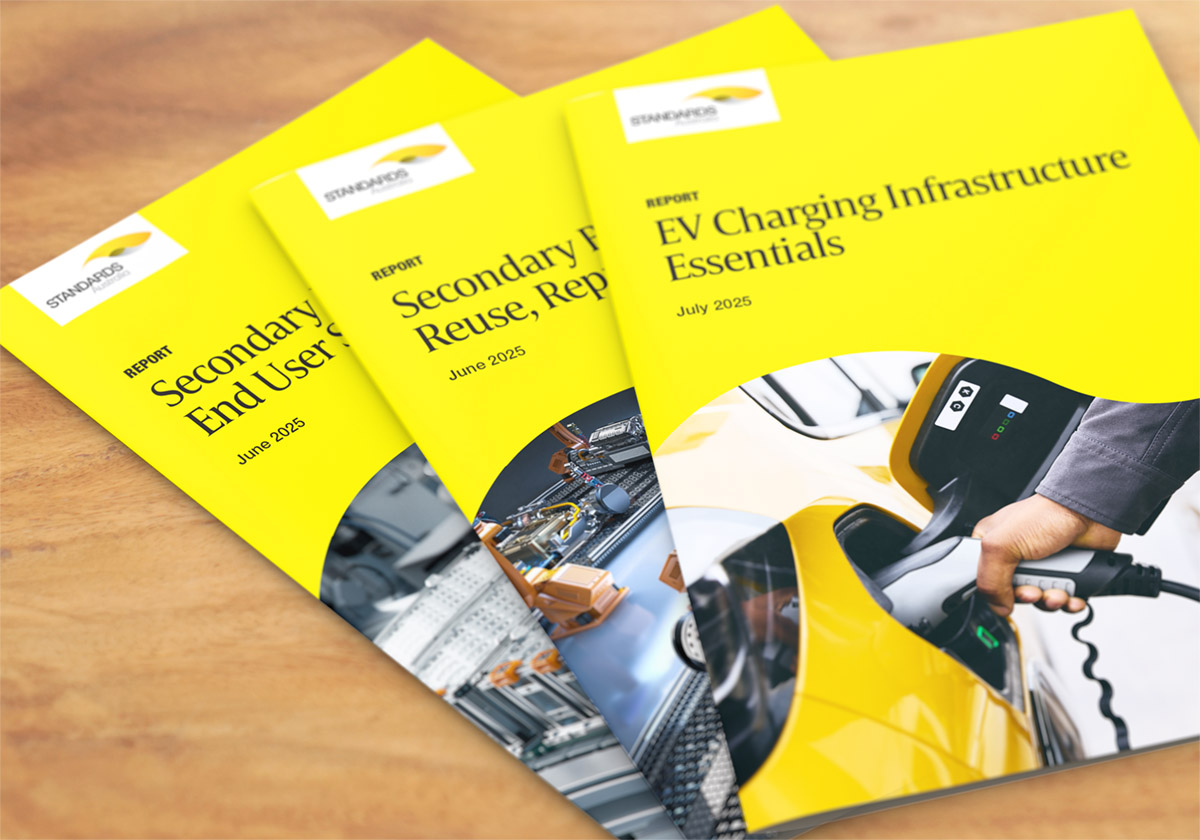Positive new standard for battery storage sector
Statements
A gap in safety guidance for the battery storage sector has today been filled with the publication of AS/NZS 5139:2019, Electrical installations – Safety of battery systems for use with power conversion equipment.
“A project of this complexity would not have been possible without the support of industry representatives, government and regulators, consumer representatives and technical experts,” said Head of Stakeholder Engagement, Daniel Chidgey. “Given there has never been an Australian standard for this new technology, developing this guidance has been a huge task and is a testament to the dedication of those involved.”
The standard has been developed for use by manufacturers, system integrators, designers and installers of battery energy storage systems. It intends to set out the requirements for the safety and installation of battery systems connected to power conversion equipment for the supply of AC and DC power.
“This standard achieves a lot for the sector by applying a risk-based process to ensure appropriate installation methods are applied depending on the hazards that are identified,” said Mr Sandy Atkins from Standards Australia’s Technical Committee responsible for the standard.
While consensus was reached in the development of the standard, differing views have been put forward and considered by the committee of technical experts along the way. “Although there were alternate technical positions raised throughout the process, this can occur in any consensus project,” said Mr Atkins.
“This standard aims to ensure battery systems are safe, consistent, and reliable for the benefit of the Australian community,” said Mr Atkins. “The work calls for consideration of available information, safety objectives and the growth of new technology in complex areas. We are proud to have helped drive this key improvement for the sector.”
“The work on battery storage standards in Australia will continue, with this being a new standard it is expected there will be future refinement as the industry evolves”, concluded Mr Chidgey.
A gap in safety guidance for the battery storage sector has today been filled with the publication of AS/NZS 5139:2019, Electrical installations – Safety of battery systems for use with power conversion equipment.
“A project of this complexity would not have been possible without the support of industry representatives, government and regulators, consumer representatives and technical experts,” said Head of Stakeholder Engagement, Daniel Chidgey. “Given there has never been an Australian standard for this new technology, developing this guidance has been a huge task and is a testament to the dedication of those involved.”
The standard has been developed for use by manufacturers, system integrators, designers and installers of battery energy storage systems. It intends to set out the requirements for the safety and installation of battery systems connected to power conversion equipment for the supply of AC and DC power.
“This standard achieves a lot for the sector by applying a risk-based process to ensure appropriate installation methods are applied depending on the hazards that are identified,” said Mr Sandy Atkins from Standards Australia’s Technical Committee responsible for the standard.
While consensus was reached in the development of the standard, differing views have been put forward and considered by the committee of technical experts along the way. “Although there were alternate technical positions raised throughout the process, this can occur in any consensus project,” said Mr Atkins.
“This standard aims to ensure battery systems are safe, consistent, and reliable for the benefit of the Australian community,” said Mr Atkins. “The work calls for consideration of available information, safety objectives and the growth of new technology in complex areas. We are proud to have helped drive this key improvement for the sector.”
“The work on battery storage standards in Australia will continue, with this being a new standard it is expected there will be future refinement as the industry evolves”, concluded Mr Chidgey.

Email:

Email:


